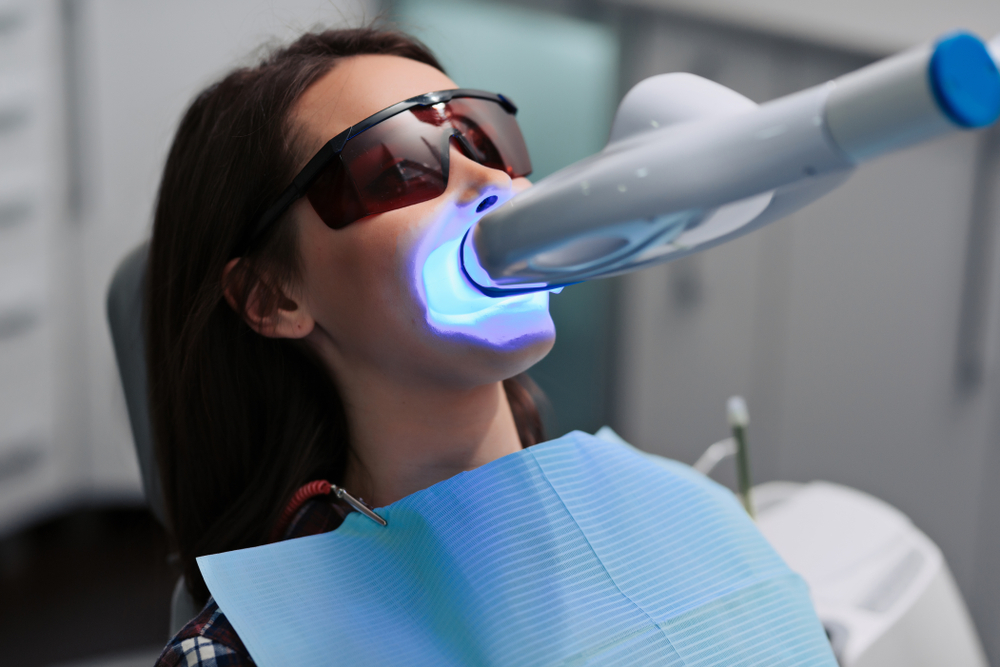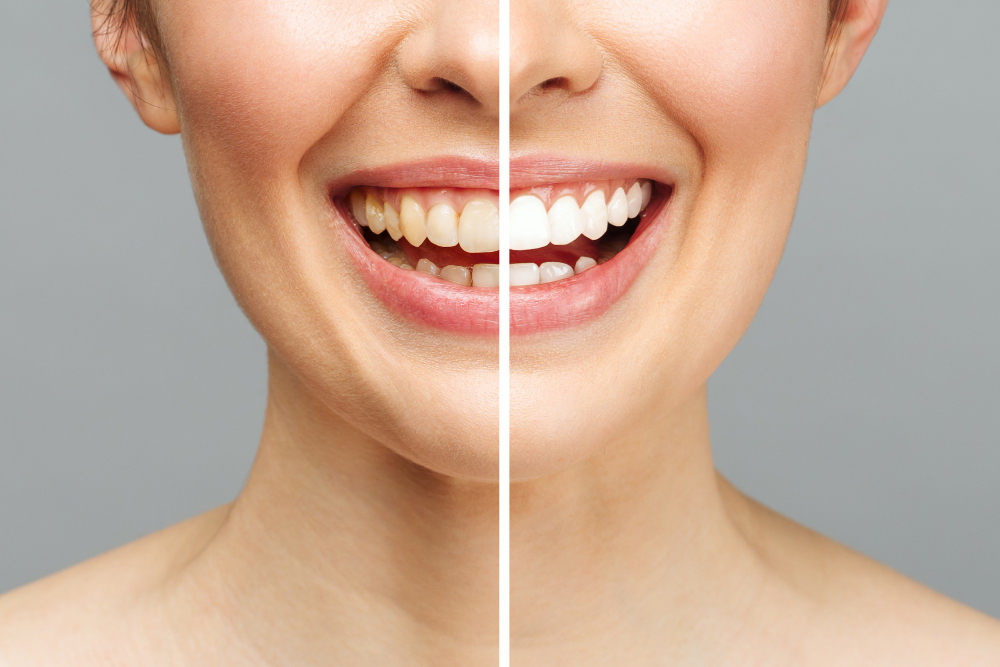Teeth Whitening Aesthetic Treatment

Laser technology boasts versatility, with its wavelength adjusting to suit various therapeutic applications. Essentially, it emits concentrated light energy in a focused beam.
In dentistry, lasers vpresent a potentially more comfortable alternative for numerous procedures involving hard or soft tissue compared to traditional drills and other non-laser instruments.

Teeth whitening treatments primarily utilize bleaching agents, typically hydrogen peroxide or carbamide peroxide, to break down stains on the enamel and dentin of teeth. These agents penetrate the tooth's surface, oxidizing and breaking apart the molecules causing discoloration. As a result, teeth appear whiter and brighter.
When performed under the supervision of a qualified dental professional, teeth whitening is generally safe and effective. However, overuse of whitening products or improper application can lead to tooth sensitivity, gum irritation, or enamel damage. It's essential to follow the instructions provided by your dentist and avoid excessive whitening treatments.
The duration of teeth whitening results can vary depending on various factors, including individual habits and lifestyle choices. Typically, the effects of professional teeth whitening can last from several months to up to three years. Avoiding staining substances such as coffee, tea, and tobacco can help prolong the results. Additionally, periodic touch-up treatments may be recommended to maintain a bright smile.
Teeth whitening is generally suitable for individuals with healthy teeth and gums who are bothered by tooth discoloration or staining. However, it may not be suitable for everyone, such as pregnant or breastfeeding women, individuals with sensitive teeth or gum disease, and those with extensive dental restorations. A dental consultation is essential to determine if teeth whitening is appropriate for you and to discuss the most suitable treatment options.

Teeth whitening treatments primarily utilize bleaching agents, typically hydrogen peroxide or carbamide peroxide, to break down stains on the enamel and dentin of teeth. These agents penetrate the tooth's surface, oxidizing and breaking apart the molecules causing discoloration. As a result, teeth appear whiter and brighter.
When performed under the supervision of a qualified dental professional, teeth whitening is generally safe and effective. However, overuse of whitening products or improper application can lead to tooth sensitivity, gum irritation, or enamel damage. It's essential to follow the instructions provided by your dentist and avoid excessive whitening treatments.
The duration of teeth whitening results can vary depending on various factors, including individual habits and lifestyle choices. Typically, the effects of professional teeth whitening can last from several months to up to three years. Avoiding staining substances such as coffee, tea, and tobacco can help prolong the results. Additionally, periodic touch-up treatments may be recommended to maintain a bright smile.
Teeth whitening is generally suitable for individuals with healthy teeth and gums who are bothered by tooth discoloration or staining. However, it may not be suitable for everyone, such as pregnant or breastfeeding women, individuals with sensitive teeth or gum disease, and those with extensive dental restorations. A dental consultation is essential to determine if teeth whitening is appropriate for you and to discuss the most suitable treatment options.
Your dentist will begin by examining your teeth and gums to ensure they are healthy and suitable for whitening. Protective measures will be taken to shield your gums and lips.
A professional-strength bleaching gel containing hydrogen peroxide or carbamide peroxide is applied directly to your teeth. Sometimes, a special light or laser is used to activate the gel and enhance its whitening effects.
The gel is left on your teeth for a specified amount of time, typically around 15 to 60 minutes, depending on the whitening system used.




